|
Introduction
and Page 1 /
2 /
3 /
4 /
5 /
6 /
7 /
8 /
9 /
10 /
11 /
12 /
13 /
14 /
15 /
16 /
17 /
18 /
19 /
20 /
21 /
22 /
23 /
24 /
25 /
26 /
27 /
28 /
29 /
30 /
31 /
32 /
33 /
34 /
35 /
36 /
37 /
38 /
39 /
40 /
41 /
42 /
43 /
44 /
45 /
46 /
47 /
48 /
49 /
50 /
51 /
52 /
53 /
54 /
55 /
56 /
57 /
58 /
59 /
60 /
61 /
62 /
63 /
64 /
65 /
66 /
67 /
68 /
69 /
70 /
71 /
72 /
73 /
74 /
75 /
76 /
77 /
78 /
79 /
80 /
81 /
82 /
83 /
84 /
85 /
86 /
87 /
88 /
89 /
90 /
91 /
92 /
93 /
94 /
95 /
96 /
97 /
98 /
99 /
100 /
101 /
102 /
103 /
104 /
105 /
106 /
107 /
108 /
109 /
110 /
111 /
112 /
113 /
114 /
115 /
116 /
117 /
118 /
119 /
120 /
121 /
122
70
< Page 71 < 72
Ray Carney's Mailbag -- This section of the site contains letters written to Prof. Carney by students and artists, announcements of news, events, and screenings, and miscellaneous observations about life and art by Ray Carney. Letters and notices submitted by readers are in black. Prof. Carney's responses, observations, and recommendations are in blue. Note that Prof. Carney receives many more letters and announcements than he can possibly include on the site. The material on these pages has been selected as being that which will be the most interesting, inspiring, useful, or informative to site readers. Click on the first page (via the links at the top or bottom of the page)
to read an explanation of this material, why it is being posted, and how this relatively small selection was made from among the tens of thousands of messages Prof. Carney has received.
Click
here for best printing of text
Subject: Thanks for your web site
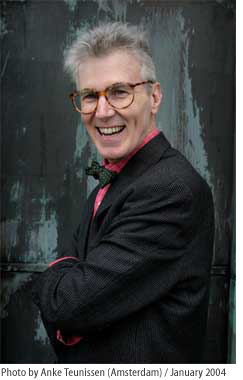 Hi Ray, Hi Ray,
I came to your web site by way of your intro in Rick Schmidt's Extreme DV book. I'm a beginning writer/ filmmaker.
Thank you for making so many of your interviews available on your site. Not just from a film perspective, but your various points about media, culture, and life in general.
I often can't find a way to fit into traditional corporate culture, where people never question anything, and seem to be able to dedicate their lives to ideals and values that don't really exist. Where thoughtfulness and honesty is perceived as vacillation and lack of dedication. My main motivation for work is to provide for my family, but I could never seem to make everything fit. I guess I was so intellectually starved that my only perspective was to fault myself, completely unaware that any other sort of life exists- you sorta get ingrained into American popular culture and life as a bank commercial. I'll have to consider more carefully about how to raise my daughters. I came upon screenwriting a year ago, and initially set my sights on landing a 'spec sale'. I now only seek to write to write. It may not change my career, but I can't seem to do it any other way, now that I'm aware of the difference. I wish I had started earlier, but I guess I probably wasn't ready.
Thanks,
Steve Lang
Ray Carney replies:
Steve,
Thanks for the good words. All that matters is that we create something loving and beautiful to leave behind when we go. It can be through our actions, our words, or our art.
Keep going. Never give up. All best wishes,
Ray
Ray,
I spent half of today on your site soaking in the excerpts. I plan to buy the full works soon...
Your definitions of what true art is remind me of some of the writings from the late novelist Vardis Fisher. I've spent years studying Fisher, read his 35 novels and non-fiction works, even manage his website, and I think you'd enjoy the manual he wrote in the 1950s called God or Caesar? It's geared toward the young novelist, but applies to any art form... the book helps the young writer decide if they want to be an artist or businessman, and of course pushes them to create art instead of merchandise.
You guys are on the same page and I think you'd find some kinship in reading it.. If you can't find a copy in your library or don't have the extra money to get a copy I'd be happy to send you one... It's a rare, hard to find book.
Here are a few articles written by Fisher you might enjoy as well.
Vardis Fisher's Heroes
Defenders of Truth Pay High Price
The Search for Truth
I enjoyed your articles immensely and look forward to reading all your books and essays.
Kelly
Ray Carney replies:
Thanks, Kelly. Your note is what I call a bolt from the blue. Or from the internet ether. Tell me something about yourself. Email is so deracinated. Where are you living? What do you do? Who are you? What are your desires, dreams, visions, goals--imaginatively, I mean? (I don't give a darn about "careers!") Do you ever come to Boston? How did you acquire this interest? I'm really interested in people in general, so anything at all you can tell me will be interesting.
I wish you well. Never give up and never compromise on your dreams! They are the only thing that makes you (and me and everyone else) unique.
Ray
Kelly replies:
Ray,
Sorry. That was a bit out of the blue....
Well, I guess to put who I am in 'film context' about 5-6 years ago I set up a make-shift office in my garage and banged out a screenplay. Writing it was euphoric... It goes down as one of the best times in my life.
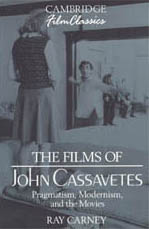 I emailed this screenplay to some friends... and in about a month's time it got bandied around and I found myself signing a development deal with a major Hollywood literary management slash production company. Of course, not for my original screenplay, because they said, while they found the writing good, it just wasn't commercial. They wanted to take me on as a client because of my 'voice' (whatever that means) and develop a project. They taught me about loglines, 'high concept' and the three-act structure... I somehow, still unknown to me, came up with a big, commercial idea and from there as I tried to write this thing I got more and more depressed and soon my writing slowed to a crawl and eventually a major block. I worked with
these people for over a year, a neurotic mess pretty much every day. I even gained 30 pounds and found it hard to get out of bed. I emailed this screenplay to some friends... and in about a month's time it got bandied around and I found myself signing a development deal with a major Hollywood literary management slash production company. Of course, not for my original screenplay, because they said, while they found the writing good, it just wasn't commercial. They wanted to take me on as a client because of my 'voice' (whatever that means) and develop a project. They taught me about loglines, 'high concept' and the three-act structure... I somehow, still unknown to me, came up with a big, commercial idea and from there as I tried to write this thing I got more and more depressed and soon my writing slowed to a crawl and eventually a major block. I worked with
these people for over a year, a neurotic mess pretty much every day. I even gained 30 pounds and found it hard to get out of bed.
I finally, after much reading and contemplation decided I couldn't do it... some people said I was crazy turning down money, career and potential fame... but it just wasn't me... I wasn't interested in cardboard characters, loglines, plots and structure... writing commercial screenplays was torture.
So from there I did nothing film related for a couple years until I finally saved up enough money and got a DV camera, editing software, etc.
I teamed up with some friends and we started making short films here in Boise, Idaho where I live. Our films are rough, improvised and people tend to either hate them or like them... While we are limited in a lot ways, and the results imperfect, we feel reasonably satisfied... I even started 'acting' and have found I enjoy that quite a bit even though I know zilch about it.
If interested, here are a couple shorts with me in them... I play the cowboy sort of guy in the first and the painter in the second and 'Randy' in the third.
Peggy
Buhl
Randy & Steve
When it comes to hopes and dreams I would say I hope to start making features I shoot in my hometown with local people... I think a feature will be my next project. I hope to discover great art, which I'm in a constant search for, and meet people who are truth seekers...
Since contemplating making a feature a friend recommended a book by Rick Schmidt which I got in the mail yesterday, read a forward by you and I couldn't believe my eyes. I couldn't believe there was somebody out there saying the kinds of truthful things you do. It was therapeutic and as cheesy as this sounds it made me feel less alone. And of course reminded me of Vardis Fisher, which I initially wrote you about.... Fisher helped me pull away from the seduction of Hollywood, which he avoided his entire life until after he died and somebody butchered his most commercial and worst novel into a movie called Jeremiah Johnson...
So I guess that's the short story.... I appreciate your writing back and am thankful that there are people out there like you. As soon as my wife gives me the greenlight I will buy the books listed on your site. I even wishlisted your others on my Amazon account.
Kelly
Ray Carney replies:
Thanks, Kelly. I call that a success story!!! Congratulations! You were saved from a fate worse than death! Commercialism, I mean. Selling your soul. Who needs it? We all need the money, of course (I do too!), but we need our souls even more!
Sorry I can't access your video files. My computer is twelve or thirteen years old, and the hard drive is creaky with no video software at all or capability to run it. But I'll take your word for it.
Rick Schmidt is doing the same thing you are or will be: Using local resources, local folks, and local facilities to tell local truths. Lower case truths, not upper. Specific truths, not general. Practical truth, not abstract. Hollywood is truth from nowhere about nobody meaning nothing. All truth, all real truth I mean, is local.
P.S. Can I put your letter to me on my Mailbag? It would help others like you hold onto their souls against the pressure to sell them to the highest bidder. Keep going. Small is better. Small is beautiful!
Ray
Kelly replies:
Subject: Thanks
I appreciate the congratulations. I can't tell you how many people have said JUST THE OPPOSITE. Soul selling is exactly right... I make my living in other ways that don't poison me... It was scary to walk away from the kind of money they pay screenwriters... enough money to where you could feasibly retire off a few sales. It's insane. But I had to do it and am VERY glad I did.
Local is a great point. I find the people in Idaho so interesting as I'm sure the people in your neck of the woods are. Why cheapen the complexity and diversity of humanity with stereotypes and lies?
I'd be honored if you put up the letter. Hopefully it helps somebody... However, because of those blasted spam-bots who harvest email addresses I'd appreciate if you didn't list my address... I'm already choking with spam...
Thanks again for the replies!
Kelly
RC replies:
No problem. I never post email addresses. Many others can learn from your experience trying to make a sow's ear from a silk purse. These businessmen only understand recipe filmmaking. Anything else scares them. And the recipes they use are worthy of McDonald's. Those Idaho spuds don't have to be turned into greasy Big Mac fries.
Do something original. Do something that tells the truth. Do something that is personal. That's saying the same thing three different ways.
Best wishes,
Ray
Your words are motivating. Thank you very much, sir.
I appreciate the correspondence and one day after I finish a feature and if it turns out alright I may just mail you a copy.
Kelly
A note from Ray Carney: my good friend (and former student) Ted Barron, Senior Programmer for the Harvard Film Archive, and I were bemoaning the lack of acknowledgment of "real" independent filmmaking by the powers that be: most notably, the Sundance Institute and Film Festival, the American Film Institute, the IFP "Independent Spirit Awards," and the Tribeca Film Festival. We agreed that they were all, in one way or another, covertly in hock to Hollywood values and other forms of cuteness, stupidity, and fashionable, well-financed meaninglessness. (Witness the programming of and awards given to Little Miss Sunshine, Napoleon Dynamite, and other junky but popular movies.) Ted called my attention to a filmblog he admired for daring to "speak truth to power" --in other words, for being willing to say that Sundance, the AFI, the IFP, or Tribeca were not living up their much-vaunted ideals. It is called "Filmbrain--Like Anna Karina's Sweater," and I recommend it. Click here to read the current news page. Not bad. Not bad at all.
Subject: On Americans and their institutes
Hello Ray,
I got a chance to check the site recently, now that school is out. I specifically paid close attention to you and your readers remarks on the failures of my generation (I'm 19, 20 in June) and our schools.
Recently, I lost one of my close artists friends. The breaking point was an argument that lasted till about one in the morning. This was a guy I was supposed to stick with till the end, artistically and friendship speaking of course...
The argument was as follows:
He, an "art" institute senior, says: He wants to make around $60,000 a year in his career (filmmaker, and I must admit, he's talented and knows more about the emotions than I do. He's got more to say than...almost anyone I know.). This money can attract girls and let him travel the world. I personally think there's nothing wrong with that (except for the girl part, as I personally don't use girls for security, comfort, sex, or a surrogate mother. My favorite, and closest, girls are the ones who chastise me more accurately than the rest. Yeah, I'm eccentric.), but then I tried to tell him to keep a little space for a spiritual life in there. Surely his whole life and career and these years of youth are not going to be spent trying to get a career! What about telling us what he's learned about the world and the people in it! I'm chasing a career too, but movies, truth, my soul, always comes first! I meet deadlines to, but that's just responsibility, not my destiny!
He starts mentioning how I'm dropping the ball on my short films and this one long film I'm working on. Every time I mention what's been going on with the thing, he says it doesn't sound very marketable. I say I'm not trying to make money with this movie. My journalistic writing is for that. In my movies I'm trying to maybe find and express the truth. I'm trying to find out why America feels like it's dying. A job is for making money. Movies are for my soul. I make this movie because I have to. (I hate to tell him this, but I might not even send this thing, once finished, off to any festivals. Might as well put my baby into a "beauty" pageant.)
By now I realize we're on two different wavelengths. That's fine. I can live with that. Most people don't agree with me and my devotion to truth-seeking and telling. Our conflict is just a glimpse of America as a whole. It's almost as if the Truth is supposed to fill us up since we are spiritual creatures. Without that, all there is is surface. No truth means you will chase and worship the surface. Instead of obtaining inner hapiness, substance, you chase money, girls, a career, fame (Oh man, he says he wants to make movies to "live forever". Come on man! We only got today! Even Jesus said, "Don't worry about tomorrow. There's enough cares today." Besides, why would I want a bunch of arrogant, vain, dripping-with-hubris, shallow, moronic losers to know who I am?!? They won't even understand half the things I ask!). You will (or 'America does') worship emptiness and human standards which don't matter. America thinks they matter, but it really doesn't.
Anyways, there's a very brief document of a small personal battle in a very large spiritual war.
A few weeks later, I realize that he is a "victim" (hate hate hate that word! What an excuse!) of American culture. Maybe his intentions were pure. I know for sure he had no hatred while I was full of unforgiving ungracious rage (as usual...). I also realized later that, to him, so many doors and opportunities are opened with money in America. Well, my doors, and I will die believing this, were opened by God. Not that religious mental ideal of 'god' either... I understand him better now, and it breaks my heart, truly, to think I'm losing him, and I really do want to stick with him, but it really is time to take certain things very seriously.
Reagan
By the way, I've read (some) of your Emerson recommendations. I like what he says, but then other things I haven't quite digested and made up my mind on yet. I definitely agree that every single human soul in this world has the equal privilege and opportunity to reach spiritual maturity. I also believe that our spiritual journeys (priesthood?) are, obviously, very private and personal. I also believe that there's this...."spiritual ambassadorship" (?) where we express love, truth, etc. in our interactions with people. Do you mind telling me what you think about these issues? Sometimes I feel like I'm taking crazy pills here!
Eh, for what it's worth, I've got roughly nine hours of video tape sitting in my drawer. Shots of talking. Interviews. Little vignettes. Moments of animals and life where I jumped out of the car and just started rolling the camera. I don't even want to watch the footage cuz I don't know what the hell to do with it all. Where's my wonderful and insightful story? Where's the intriguing and uplifting plot? Where's anything resembling something useful? And I haven't even filmed one-third of the script yet! On top of that, one of the actors "abandoned me" (I'm being facetious), another lost almost all of her enthusiasm, and the third who really truly is down in it with me leaves home Sunday for the summer! yes, this too is an opportunity...
RC replies:
Reagan,
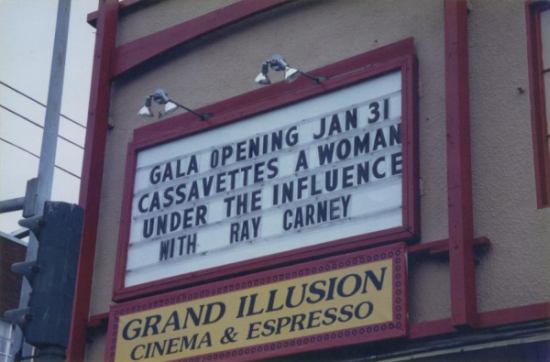 Thanks for the report from the front, from down in the trenches. The struggle you describe is being fought everywhere: in every institution, in every heart and mind. I have first-hand experience with universities that are just as "market-focused" in their admissions policies (at the graduate level), their course offerings, their curricula, and their evaluation process (grades, comments on papers, and letters of recommendation) as your friend is in his work. The ever-present pressures of the sales-system cannot be avoided. The temptation to give in to market forces cannot be avoided anywhere in American culture. They are everywhere, in every institution, and almost every relationship. But, to expand the picture a bit, I'd add that market forces are only half of the story. There are dozens of other systems pressuring people to conform to them, to weigh things in terms of their values. For students, there is the allure of "grand generalizations," "sociological abstractions" and "big ideas" that defeats small, slow, careful acts of attention, openness, andpresent-mindedness. (See Robert Bresson's A Man Escaped for more on this subject. He knew we were all in prison and only careful acts of attention and "presence" could free us.) There is also the allegiance to rules and regulations as a way of simplifying life. (See Bresson's Lancelot of the Lake for the corrosive effects of abstract values and allegiances on human relationships.) Then, for politicians and business men, there is the desire to attain and wield "power." (See Faces for Cassavetes' views on this.) And, for almost everyone, there is the desire to be "popular" and "pleasing." (See The Killing of a Chinese Bookie for Cassavetes' thoughts on the pernicious effects of wanting approval, of needing to be liked.) And over it all, smearing the picture, is the ego with its clamorous needs and claims for specialness and individuality and its unappeasable, endless fears and doubts. But basta. Enough of this mournful sight. What to do? What to do? What to do to break free of the systems -- to save ourselves, to give love to others, to give compassion to the world? Thanks for the report from the front, from down in the trenches. The struggle you describe is being fought everywhere: in every institution, in every heart and mind. I have first-hand experience with universities that are just as "market-focused" in their admissions policies (at the graduate level), their course offerings, their curricula, and their evaluation process (grades, comments on papers, and letters of recommendation) as your friend is in his work. The ever-present pressures of the sales-system cannot be avoided. The temptation to give in to market forces cannot be avoided anywhere in American culture. They are everywhere, in every institution, and almost every relationship. But, to expand the picture a bit, I'd add that market forces are only half of the story. There are dozens of other systems pressuring people to conform to them, to weigh things in terms of their values. For students, there is the allure of "grand generalizations," "sociological abstractions" and "big ideas" that defeats small, slow, careful acts of attention, openness, andpresent-mindedness. (See Robert Bresson's A Man Escaped for more on this subject. He knew we were all in prison and only careful acts of attention and "presence" could free us.) There is also the allegiance to rules and regulations as a way of simplifying life. (See Bresson's Lancelot of the Lake for the corrosive effects of abstract values and allegiances on human relationships.) Then, for politicians and business men, there is the desire to attain and wield "power." (See Faces for Cassavetes' views on this.) And, for almost everyone, there is the desire to be "popular" and "pleasing." (See The Killing of a Chinese Bookie for Cassavetes' thoughts on the pernicious effects of wanting approval, of needing to be liked.) And over it all, smearing the picture, is the ego with its clamorous needs and claims for specialness and individuality and its unappeasable, endless fears and doubts. But basta. Enough of this mournful sight. What to do? What to do? What to do to break free of the systems -- to save ourselves, to give love to others, to give compassion to the world?
All I can say is that in the face of these forms of rigidity and coercion, we must each still manage to find our own, unique ways to move along our own, unique personal paths. The only mistake, in my view, would be to collapse into the systems around us. That would be to let the culture tell us who we are and what we should do. We must shape our identities and make our decisions ourselves, in our own unique ways, according to our own emotions and needs. (Not the synthetic emotions and needs programmed into us by the culture, but our real ones.) And, of course, we must live with the consequences. We are all ultimately responsible for everything. No one can lift that burden from us. The fact that we were merely "following (cultural, bureaucratic, or familial) orders" will never pass muster in the great reckoning to come. And it is coming soon for all of us, no matter what our current age.
R.C.
From: "Dan Jones"
Subject: do big time film departments ever bring in special guests that are NOT businessmen
RC,
The other day I was meandering through the only used bookstore here in town, browsing the two shelves labeled: "Philosophy," when I came upon a thin collection of essays by Habermas called "Toward a Rational Society." In the first essay, "The University in a Democracy," he address, "the peculiar idea that research and instruction today have to do only with the production and transmission of technologically exploitable knowledge." What he sees disappearing are, "the tasks of the university to transmit, interpret and develop the cultural tradition of the society." The punchline, as I am sure you know, is that Habermas is talking about Europe in the late 60's!
What on earth would he make of our contemporary American colleges and universities? I'm in a fine arts program that is supposedly interdisciplinary. Well, last year we hired two new faculty members. Instead of filling the void in the area of dance or addressing the notion that literature and poetry need to be a part of this program, we hired a specialist in African art and a sociologist who writes about the audiences of rock concerts. There are plans to hire a professor of Southeast Asian Studies in the near future.
My question becomes this: If we aren't going to transmit, interpret and develop our cultural tradition in the FINE ARTS department, where in the hell are we going to do it? It seems to me that soon it will soon reach the point where film departments, English departments, art history departments, and all the rest of the humanities and the fine arts are going to be made up entirely of faculty whose specializations are strictly ideological. There will be no period people in English or Art History; there will be no national cinema people in film, there will certainly be no experts on individual geniuses. There will be performance studies people, feminists, queer theorists, deconstructionists, cultural studies folks, and post-colonialists. I just hope that I can get a job as the department's lone film-as-art guy.
I think you might know something about that, yes? Speaking of which, do you foresee a future with any new content to your website outside of the mailbag?
Best wishes to you as always.
cheers,
dj
RC replies:
Subject: Art as resistance
Haha, Dan. I can tell you read the posting on page 70 of the Mailbag. (Click here to go there.) Appalling, n'est-ce pas? At least it was to me. A clue to who this guy was (the one I describe on page 70 near the bottom): His claim to fame was the authorship of one or more of the James Bond screenplays. Now that may sound like a big heehaw, but in fact he was brought in to "examine" and "report on" the Film Program: its faculty, its curriculum, its students. That's the person they picked. And (assuming you read the Mailbag entry on page 70, which I'm sure you did) that's one of the things that happened during his visit. His attack on me and on the idea that a filmmaker actually could be "idealistic," "pure," and not interested in "profits." So there you go. That's the person charged with advising us on how to do things in the next decade or so.
And the "fallacy" of your letter (I am speaking from the institutional point of view, needless to say, not my own) is that you (from the institutional point of view, not my own) OUTRAGEOUSLY, IDIOTICALLY, RIDICULOUSLY think of film as a "fine art." How stupid. How benighted. How cloistered. How elitist. How anti-democratic. How lunatic you (and Jurgen Habermas) are. How backward. How un-21st Century. Let's get with the program, Mr. Jones.
You do honor to these folks to call them "ideological." That would be an improvement. Their only ideology is "the market." The ticket-purchaser. The box office. The gross. The Academy Awards. I could at least frame a reply if they were out and out feminists, gay theorists, or Marxists. But it's much harder to reply when there are no real ideas at stake. These folks (the visitor and those who invited him and those who sat still for his critique of the program) ultimately have no ideology beyond profit--which of course they are smart enough not to call by its own name, but rather build theories to defend in terms of the power of "pop culture," "viewer receptivity," "influence," "entertainment," etc., even as they try to say there is no difference from the folks they study and promote and "Lars-what's-his-name."
By the way, don't make the mistake of marketing yourself as the "film as art" guy. That would be fatal. Lethal. Don't forget that these folks HATE art. They don't understand it. Heck, they don't even admit it exists. Art to them is that "dead white male" thing, that "elitist" thing that loses money and doesn't get on Entertainment Tonight because it so stupidly ignores market pressures and popularity and demographics. See how heady their ideas are? In their minds, they have overturned three millenia of "elitist" understandings. Of course they are are wrong, demented, stupid, misinformed. But they are in power right now, so don't dare make the mistake of telling them you actually believe in "art." You'll only be labelled a fool, and lectured at, and told that "Lars von what's his name" is in it for the money too! You foolish idealist.
 Tom Noonan Tom Noonan
Photo by Ray Carney |
But please do keep fighting the uphill battle in a more subterranean way. Burrow like Shakespeare's Old Mole. Come up and capture the hearts of the Hamlets. There are still some out there. Darn few, but a few. Tell them the truth.
Tell them how their father has sold his soul. Tell them that their mother is a whore. Resist. Resist the present. Resist the dominant forms of knowledge. That's what we critics exist to do.
And, even if we critics didn't exist, art itself is, of course, a form of resistance. The arts and the artists who create art resist appropriation by the dominant culture. In other words, Tarkovsky, Bresson, Cassavetes, Noonan, Garcia -- and all the others--are moles too. Burrowing, burrowing, burrowing under the ramparts and walls of the commercial market culture, digging trenches and planting mines to explode it from within.
That's what art does. It challenges the "ordinary understandings" and "common sense" of businessmen, politicians, and ordinary people. It thrives on the challenges it creates. It creates resistance without even trying. (A note to site visitors: See the passage from James Joyce's Ulysses that follows this letter if you would like to see an example. Joyce's writing will never be turned into "entertainment." It will never be made palatable for the masses. It will never accommodate itself to the emotional clichés of TV or Hollywood. It will never be turned into the kind of middle-brow piety and obviousness that gets into the newspaper. That's what all art exists to do. To resist, to defeat, to frustrate those dominant cultural forms of understanding, those simpler ways of knowing. Art creates spirit and consciousness in a world of objects and events. It builds souls in a world that denies them. And it does those things by making trouble, by being difficult, by challenging and defeating all "normal" or "ordinary" ways of understanding.)
Thanks,
Ray
P.S. Regarding the content of the site: I have two major books in press and one in preparation. I shall post excerpts from all three as soon as I possibly can. But what's wrong with frequently updating the Mailbag? It's my diary, my blog, the story of my inner life in words. It's what I am and what I am living through day by day. I put my heart -- my life, my soul, and my mind -- in it. What more do you want?????!!!! : )
"Art as resistance," "art as defiance," "art as challenge" department (for an explanation, see Ray Carney's reply to the preceding letter from Dan Jones): What follows is a brief excerpt from James Joyce's glorious, mysterious, sacred description of the glory, the mystery, and the holiness of the earth, the heavens, and the love of a woman from the "Ithaca" chapter of Ulysses:
What in water did Bloom, waterlover, drawer of water, watercarrier returning to the range, admire?
Its universality: its democratic equality and constancy to its nature in seeking its own level: its vastness in the ocean of Mercator's projection: its umplumbed profundity in the Sundam trench of the Pacific exceeding 8,000 fathoms: the restlessness of its waves and surface particles visiting in turn all points of its seaboard: the independence of its units:  the variability of states of sea: its hydrostatic quiescence in calm: its hydrokinetic turgidity in neap and spring tides: its subsidence after devastation: its sterility in the circumpolar icecaps, arctic and antarctic: its climatic and commercial significance: its preponderance of 3 to 1 over the dry land of the globe: its indisputable hegemony extending in square leagues over all the region below the subequatorial tropic of Capricorn: the multisecular stability of its primeval basin: its luteofulvous bed: Its capacity to dissolve and hold in solution all soluble substances including billions of tons of the most precious metals: its slow erosions of peninsulas and downwardtending promontories: its alluvial deposits: its weight and volume and density: its imperturbability in lagoons and highland tarns: its gradation of colours in the torrid and temperate and frigid zones: its vehicular ramifications in continental lakecontained streams and confluent oceanflowing rivers with their tributaries and transoceanic currents: gulfstream, north and south equatorial courses: its violence in seaquakes, waterspouts, artesian wells, eruptions, torrents, eddies, freshets, spates, groundswells, watersheds, waterpartings, geysers, cataracts, whirlpools, maelstroms, inundations, deluges, cloudbursts: its vast circumterrestrial ahorizontal curve: its secrecy in springs, and latent humidity, revealed by rhabdomantic or hygrometric instruments and exemplified by the hole in the wall at Ashtown gate, saturation of air, distillation of dew: the simplicity of its composition, two constituent parts of hydrogen with one constituent part of oxygen: its healing virtues: its buoyancy in the waters of the Dead Sea: the variability of states of sea: its hydrostatic quiescence in calm: its hydrokinetic turgidity in neap and spring tides: its subsidence after devastation: its sterility in the circumpolar icecaps, arctic and antarctic: its climatic and commercial significance: its preponderance of 3 to 1 over the dry land of the globe: its indisputable hegemony extending in square leagues over all the region below the subequatorial tropic of Capricorn: the multisecular stability of its primeval basin: its luteofulvous bed: Its capacity to dissolve and hold in solution all soluble substances including billions of tons of the most precious metals: its slow erosions of peninsulas and downwardtending promontories: its alluvial deposits: its weight and volume and density: its imperturbability in lagoons and highland tarns: its gradation of colours in the torrid and temperate and frigid zones: its vehicular ramifications in continental lakecontained streams and confluent oceanflowing rivers with their tributaries and transoceanic currents: gulfstream, north and south equatorial courses: its violence in seaquakes, waterspouts, artesian wells, eruptions, torrents, eddies, freshets, spates, groundswells, watersheds, waterpartings, geysers, cataracts, whirlpools, maelstroms, inundations, deluges, cloudbursts: its vast circumterrestrial ahorizontal curve: its secrecy in springs, and latent humidity, revealed by rhabdomantic or hygrometric instruments and exemplified by the hole in the wall at Ashtown gate, saturation of air, distillation of dew: the simplicity of its composition, two constituent parts of hydrogen with one constituent part of oxygen: its healing virtues: its buoyancy in the waters of the Dead Sea: its persevering penetrativeness in runnels, gullies, inadequate dams, leaks on shipboard: its properties for cleansing, quenching thirst and fire, nourishing vegetation: its infallibility as paradigm and paragon: its metamorphoses as vapour, mist, cloud, rain, sleet, snow, hail: its strength in rigid hydrants: its variety of forms in loughs and bays and gulfs and bights and guts and lagoons and atolls and archipelagos and sounds and fjords and minches and tidal estuaries and arms of sea: its solidity in glaciers, icebergs, icefloes: its docility in working hydraulic millwheels, turbines, dynamos, electric power stations, bleachworks, tanneries, scutchmills: its utility in canals, rivers, if navigable, floating and graving docks: its potentiality derivable from harnessed tides or watercourses falling from level to level: its submarine fauna and flora (anacoustic, photophobe) numerically, if not literally, the inhabitants of the globe: its ubiquity as constituting 90% of the human body: the noxiousness of its effluvia in lacustrine marshes, pestilential fens, faded flowerwater, stagnant pools in the waning moon. its persevering penetrativeness in runnels, gullies, inadequate dams, leaks on shipboard: its properties for cleansing, quenching thirst and fire, nourishing vegetation: its infallibility as paradigm and paragon: its metamorphoses as vapour, mist, cloud, rain, sleet, snow, hail: its strength in rigid hydrants: its variety of forms in loughs and bays and gulfs and bights and guts and lagoons and atolls and archipelagos and sounds and fjords and minches and tidal estuaries and arms of sea: its solidity in glaciers, icebergs, icefloes: its docility in working hydraulic millwheels, turbines, dynamos, electric power stations, bleachworks, tanneries, scutchmills: its utility in canals, rivers, if navigable, floating and graving docks: its potentiality derivable from harnessed tides or watercourses falling from level to level: its submarine fauna and flora (anacoustic, photophobe) numerically, if not literally, the inhabitants of the globe: its ubiquity as constituting 90% of the human body: the noxiousness of its effluvia in lacustrine marshes, pestilential fens, faded flowerwater, stagnant pools in the waning moon.
. . .
What spectacle confronted them when they, first the host, then the guest, emerged silently, doubly dark, from obscurity by a passage from the rere of the house into the penumbra of the garden?
The heaventree of stars hung with humid nightblue fruit.
With what meditations did Bloom accompany his demonstration to his companion of various constellations?
Meditations of evolution increasingly vaster: of the moon invisible in incipent lunation, approaching perigee: of the infinite lattiginous scintillating uncondensed milky way,  discernible by daylight by an observer placed at the lower end of a cylindrical vertical shaft 5000 ft deep sunk from the surface towards the centre of the earth: of Sirius (alpha in Canis Major) 10 lightyears (57,000,000,000,000 miles) distant and in volume 900 times the dimension of our planet: of Arcturus: of the precession of equinoxes: of Orion with belt and sextuple sun theta and nebula in which 100 of our solar systems could be contained: of moribund and of nascent new stars such as Nova in 1901: of our system plunging towards the constellation of Hercules: of the parallax or parallactic drift of socalled fixed stars, in reality evermoving from immeasurably remote eons to infinitely remote futures in comparison with which the years, threescore and ten, of allotted human life formed a parenthesis of infinitesimal brevity. discernible by daylight by an observer placed at the lower end of a cylindrical vertical shaft 5000 ft deep sunk from the surface towards the centre of the earth: of Sirius (alpha in Canis Major) 10 lightyears (57,000,000,000,000 miles) distant and in volume 900 times the dimension of our planet: of Arcturus: of the precession of equinoxes: of Orion with belt and sextuple sun theta and nebula in which 100 of our solar systems could be contained: of moribund and of nascent new stars such as Nova in 1901: of our system plunging towards the constellation of Hercules: of the parallax or parallactic drift of socalled fixed stars, in reality evermoving from immeasurably remote eons to infinitely remote futures in comparison with which the years, threescore and ten, of allotted human life formed a parenthesis of infinitesimal brevity.
Were there obverse meditations of involution increasingly less vast?
Of the eons of geological periods recorded in the stratifications of the earth: of the myriad minute entomological 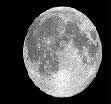 organic existences concealed in cavities of the earth, beneath removable stones, in hives and mounds, of microbes, germs, bacteria, bacilli, spermatozoa: of the incalculable trillions of billions of millions of imperceptible molecules contained by cohesion of molecular affinity in a single pinhead: of the universe of human serum constellated with red and white bodies, themselves universes of void space constellated with other bodies, each, in continuity, its universe of divisible component bodies of which each was again divisible in divisions of redivisible component bodies, dividends and divisors ever diminishing without actual division till, if the progress were carried far enough, nought nowhere was never reached. organic existences concealed in cavities of the earth, beneath removable stones, in hives and mounds, of microbes, germs, bacteria, bacilli, spermatozoa: of the incalculable trillions of billions of millions of imperceptible molecules contained by cohesion of molecular affinity in a single pinhead: of the universe of human serum constellated with red and white bodies, themselves universes of void space constellated with other bodies, each, in continuity, its universe of divisible component bodies of which each was again divisible in divisions of redivisible component bodies, dividends and divisors ever diminishing without actual division till, if the progress were carried far enough, nought nowhere was never reached.
Why did he not elaborate these calculations to a more precise result?
Because some years previously in 1886 when occupied with the problem of the quadrature of the circle he had learned of the existence of a number computed to a relative degree 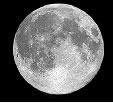 of accuracy to be of such magnitude and of so many places, e.g., the 9th power of the 9th power of 9, that, the result having been obtained, 33 closely printed volumes of 1000 pages each of innumerable quires and reams of India paper would have to be requisitioned in order to contain the complete tale of its printed integers of units, tens, hundreds, thousands, tens of thousands, hundreds of thousands, millions, tens of millions, hundreds of millions, billions, the nucleus of the nebula of every digit of every series containing succinctly the potentiality of being raised to the utmost kinetic elaboration of any power of any of its powers. of accuracy to be of such magnitude and of so many places, e.g., the 9th power of the 9th power of 9, that, the result having been obtained, 33 closely printed volumes of 1000 pages each of innumerable quires and reams of India paper would have to be requisitioned in order to contain the complete tale of its printed integers of units, tens, hundreds, thousands, tens of thousands, hundreds of thousands, millions, tens of millions, hundreds of millions, billions, the nucleus of the nebula of every digit of every series containing succinctly the potentiality of being raised to the utmost kinetic elaboration of any power of any of its powers.
Did he find the problem of the inhabitability of the planets and their satellites by a race, given in species, and of the possible social and moral redemption of said race by a redeemer, easier of solution?
Of a different order of difficulty. Conscious that the human organism, normally capable of sustaining an atmospheric pressure of 19 tons, when elevated to a considerable altitude in the terrestrial atmosphere  suffered with arithmetical progression of intensity, according as the line of demarcation between troposphere and stratosphere was approximated, from nasal hemorrhage, impeded respiration and vertigo, when proposing this problem for solution he had conjectured as a working hypothesis which could not be proved impossible that a more adaptable and differently anatomically constructed race of beings might subsist otherwise under Martian, Mercurial, Veneral, Jovian, Saturnian, Neptunian or Uranian sufficient and equivalent conditions, though an apogean humanity of beings created in varying forms with finite differences resulting similar to the whole and to one another would probably there as here remain inalterably and inalienably attached to vanities, to vanities of vanities and all that is vanity. suffered with arithmetical progression of intensity, according as the line of demarcation between troposphere and stratosphere was approximated, from nasal hemorrhage, impeded respiration and vertigo, when proposing this problem for solution he had conjectured as a working hypothesis which could not be proved impossible that a more adaptable and differently anatomically constructed race of beings might subsist otherwise under Martian, Mercurial, Veneral, Jovian, Saturnian, Neptunian or Uranian sufficient and equivalent conditions, though an apogean humanity of beings created in varying forms with finite differences resulting similar to the whole and to one another would probably there as here remain inalterably and inalienably attached to vanities, to vanities of vanities and all that is vanity.
And the problem of possible redemption?
The minor was proved by the major.
Which various features of the constellations were in turn considered?
The various colours significant of various degrees of vitality (white, yellow, crimson, vermilion, cinnabar): their degrees of brilliancy: their magnitudes revealed up to and including the 7th: their positions: the waggoner's star: Walsingham way: the chariot of David: the annular cinctures of Saturn: the condensation of spiral nebulae into suns: the interdependent gyrations of double suns: the independent synchronous discoveries of Galileo, Simon Marius, Piazzi, Le Verrier, Herschel, Galle: the systematisations attempted by Bode and Kepler of cubes of distances and squares of times of revolution: the almost infinite compressibility of hirsute comets and their vast elliptical egressive and reentrant orbits from perihelion to aphelion: the sidereal origin of meteoric stones: the Libyan floods on Mars about the period of the birth of the younger astroscopist: the annual recurrence of meteoric showers about the period of the feast of S. Lawrence (martyr, 10 August): the monthly recurrence known as the new moon with the old moon  in her arms: the posited influence of celestial on human bodies: the appearance of a star (1st magnitude) of exceeding brilliancy dominating by night and day (a new luminous sun generated by the collision and amalgamation in incandescence of two nonluminous exsuns) about the period of the birth of William Shakespeare over delta in the recumbent neversetting constellation of Cassiopeia and of a star (2nd magnitude) of similar origin but lesser brilliancy which had appeared in and disappeared from the constellation of the Corona Septentrionalis about the period of the birth of Leopold Bloom and of other stars of (presumably) similar origin which had (effectively or presumably) appeared in and disappeared from the constellation of Andromeda about the period of the birth of Stephen Dedalus, and in and from the constellation of Auriga some years after the birth and death of Rudolph Bloom, junior, and in and from other constellations some years before or after the birth or death of other persons: the attendant phenomena of eclipses, solar and lunar, from immersion to emersion, abatement of wind, transit of shadow, taciturnity of winged creatures, emergence of nocturnal or crepuscular animals, persistence of infernal light, obscurity of terrestrial waters, pallor of human beings. in her arms: the posited influence of celestial on human bodies: the appearance of a star (1st magnitude) of exceeding brilliancy dominating by night and day (a new luminous sun generated by the collision and amalgamation in incandescence of two nonluminous exsuns) about the period of the birth of William Shakespeare over delta in the recumbent neversetting constellation of Cassiopeia and of a star (2nd magnitude) of similar origin but lesser brilliancy which had appeared in and disappeared from the constellation of the Corona Septentrionalis about the period of the birth of Leopold Bloom and of other stars of (presumably) similar origin which had (effectively or presumably) appeared in and disappeared from the constellation of Andromeda about the period of the birth of Stephen Dedalus, and in and from the constellation of Auriga some years after the birth and death of Rudolph Bloom, junior, and in and from other constellations some years before or after the birth or death of other persons: the attendant phenomena of eclipses, solar and lunar, from immersion to emersion, abatement of wind, transit of shadow, taciturnity of winged creatures, emergence of nocturnal or crepuscular animals, persistence of infernal light, obscurity of terrestrial waters, pallor of human beings.
His (Bloom's) logical conclusion, having weighed the matter and allowing for possible error?
That it was not a heaventree, not a heavengrot, not a heavenbeast, not a heavenman. That it was a Utopia, there being no known method from the known to the unknown: an infinity, renderable equally finite by the suppositions probable apposition of one or more bodies equally of the same and of different magnitudes: a mobility of illusory forms immobilised in space, remobilised in air: a past which possibly had ceased to exist as a present before its future spectators had entered actual present existence.
Was he more convinced of the esthetic value of the spectacle?
Indubitably in consequence of the reiterated examples of poets in the delirium of the frenzy of attachment or in the abasement of rejection invoking ardent sympathetic constellations or the frigidity of the satellite of their planet.
Did he then accept as an article of belief the theory of astrological influences upon sublunary disasters?
It seemed to him as possible of proof as of confutation and the nomenclature employed in its selenographical charts as attributable to verifiable intuition as to fallacious analogy: the lake of dreams, the sea of rains, the gulf of dews, the ocean of fecundity.
What special affinities appeared to him to exist between the moon and woman?
Her antiquity in preceding and surviving successive tellurian generations: her nocturnal predominance: her satellitic dependence: her luminary reflection: her constancy  under all her phases, rising, and setting by her appointed times, waxing and waning: the forced invariability of her aspect: her indeterminate response to inaffirmative interrogation: her potency over effluent and refluent waters: her power to enamour, to mortify, to invest with beauty, to render insane, to incite to and aid delinquency: the tranquil inscrutability of her visage: the terribility of her isolated dominant implacable resplendent propinquity: her omens of tempest and of calm: the stimulation of her light, her motion and her presence: the admonition of her craters, her arid seas, her silence: her splendour, when visible: her attraction, when invisible. under all her phases, rising, and setting by her appointed times, waxing and waning: the forced invariability of her aspect: her indeterminate response to inaffirmative interrogation: her potency over effluent and refluent waters: her power to enamour, to mortify, to invest with beauty, to render insane, to incite to and aid delinquency: the tranquil inscrutability of her visage: the terribility of her isolated dominant implacable resplendent propinquity: her omens of tempest and of calm: the stimulation of her light, her motion and her presence: the admonition of her craters, her arid seas, her silence: her splendour, when visible: her attraction, when invisible.
70
< Page 71 < 72
Introduction
and Page 1 /
2 /
3 /
4 /
5 /
6 /
7 /
8 /
9 /
10 /
11 /
12 /
13 /
14 /
15 /
16 /
17 /
18 /
19 /
20 /
21 /
22 /
23 /
24 /
25 /
26 /
27 /
28 /
29 /
30 /
31 /
32 /
33 /
34 /
35 /
36 /
37 /
38 /
39 /
40 /
41 /
42 /
43 /
44 /
45 /
46 /
47 /
48 /
49 /
50 /
51 /
52 /
53 /
54 /
55 /
56 /
57 /
58 /
59 /
60 /
61 /
62 /
63 /
64 /
65 /
66 /
67 /
68 /
69 /
70 /
71 /
72 /
73 /
74 /
75 /
76 /
77 /
78 /
79 /
80 /
81 /
82 /
83 /
84 /
85 /
86 /
87 /
88 /
89 /
90 /
91 /
92 /
93 /
94 /
95 /
96 /
97 /
98 /
99 /
100 /
101 /
102 /
103 /
104 /
105 /
106 /
107 /
108 /
109 /
110 /
111 /
112 /
113 /
114 /
115 /
116 /
117 /
118 /
119 /
120 /
121 /
122
|










